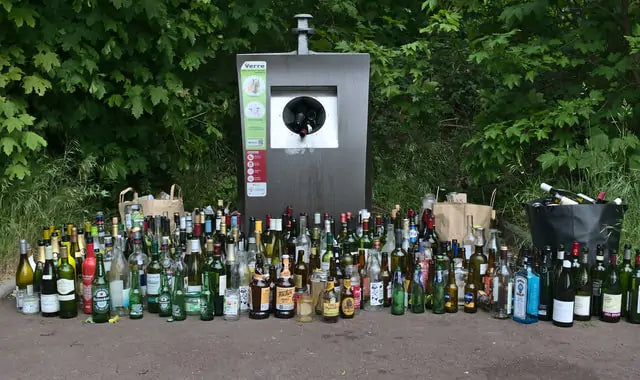Your basket is currently empty.
Shop NowWhich Country Recycled the Most in 2021?

The threats posed by climate change have become ever more real. Governments around the world are trying to tackle it. Recycling is not the only answer, but it’s an important part of the solution. But which country recycled the most in 2021?
Which Country Recycled the Most in 2021?
Germany has the highest recycling rate in the world. The nation recycles an impressive 66.1% of its waste. How did it become the world’s best recycler? The key has been no-nonsense government policy and German citizens getting on board.
A Government That’s Tough on Waste
Germany became the country that recycled the most in 2021 thanks to some strong Government rulings.
The Packaging Ordinance (Verpackungsverordnung – VerpackV)
This ruling came into force in 1991. It states that manufacturers and distributors of goods are responsible for ensuring packaging is either returned or recycled. This applies to commercial and domestic goods. Quotas are set for the recovery of materials which manufacturers and distributors must abide by.
The Closed Substance Cycle and Waste Management Act
This act came into force in 1996. Producers of goods are responsible for the avoidance, recycling, reuse, and correct disposal of any waste.
In practice, this means that;
- Products should be designed to be more recyclable;
- The production process should not be wasteful;
- Where the above is not possible, waste should be recovered so resources aren't wasted;
- Waste should be disposed of in an environmentally-friendly way.
The Green Dot
If a ‘Green Dot’ is on the packaging, it means it's accepted for recycling. If customers see the Green Dot, they know that the manufacturer has contributed to the cost of recycling it. Companies pay a licence fee to join the scheme. Those who don’t have to collect recyclable packaging themselves.
The ‘Culture of Recycling’ in Germany
Germany didn’t become the country that recycles the most overnight. The key to its success has been the combination of strong policies and the commitment of its people.
To get people on board, the government makes it as easy as possible for people to recycle. It’s the norm across Germany to have four bins;
- A blue bin for paper and cardboard;
- A yellow bin for plastic and soft metal;
- A green or brown bin for organic waste;
- A grey bin for general household waste.
Residents must recycle glass separately in the collection containers located in most German neighbourhoods.
Getting people to sort their recycling means less contamination and a higher recycling rate.
Pfand: Germany’s Deposit Return Scheme
Another reason why Germany is the country that recycled the most in 2021 is Pfand, its deposit return scheme. When you buy bottles and cans in a supermarket or kiosk, you pay a small deposit on top of the price. You then get this refunded when you return the can or bottle.
Not all bottles are part of the scheme, however. You can get a deposit back when you return;
- Non-alcoholic glass bottles;
- Beer bottles;
- Thicker plastic soft drink bottles;
- Glass yoghurt containers;
The following are not included in the deposit scheme;
- Wine bottles;
- Spirit bottles;
- Bottles from other countries;
- Milk and juice containers (Tetra Pak);
Residents must recycle these bottles in separate containers located in most neighbourhoods. Tetra-Paks go in the yellow bin.
So there you have it, Germany was the world’s top recycler in 2021. Hopefully, the country’s impressive achievements have inspired you to level up your recycling efforts. For more interesting articles on all things recycling, check out the rest of our blog.
